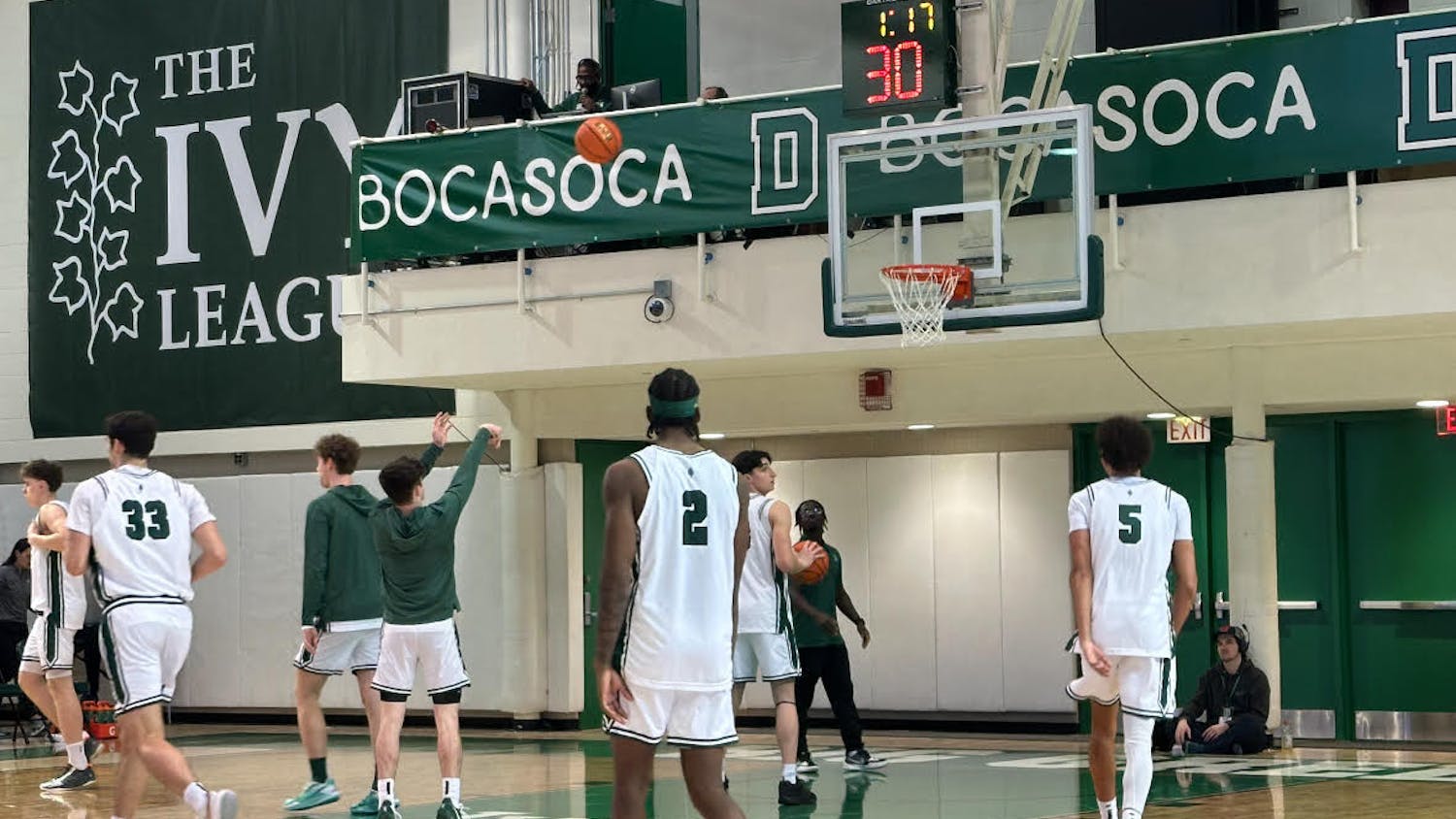After the game, Sulser learned that he had a torn ulnar collateral ligament and would have to undergo Tommy John surgery, sidelining him for his entire senior season.
For Sulser and other student-athletes who suffer significant injuries, one option to compensate for missed playing time is the redshirt program, which allows injured athletes to sit out an entire season of competition without losing a year of eligibility. Student-athletes typically have four years in which they are allowed to compete, but redshirting allows them to return for a fifth year and play again.
Tim McManus '11 is currently in his fifth season of eligibility and is serving as a football team co-captain for the third straight season. He redshirted his junior year after breaking the fibula in his right leg, the day before the start of preseason camp.
"We were having captain practice the day before preseason," McManus said. "At first I thought it was just a dead leg, but it ended up being much worse. It was a clean break so I didn't need surgery, but I still wasn't able to play a single game that season or practice much at all."
While redshirting does not erase the frustration of watching an entire season from the sidelines, McManus said the experience taught him about the game from a different point of view.
"I learned a lot about the coaching perspective and game-type management," he said. "I'm more aware of the strategic formation of the game, which was definitely beneficial."
McManus added that some positives have come from being able to play for a fifth season.
"It wasn't fun watching for a year," McManus said. "But now I have the opportunity to be a part of the first night game in Dartmouth history and play with my brother [Ryan McManus '15], who's a freshman."
Sulser said the ability to redshirt and remain at Dartmouth for an additional year has aided his academic plans. Before his injury, he had been considering pursuing a Bachelor of Engineering degree, and the injury made his decision easier.
"If I had been pursuing a different degree, it would've been difficult to work out," Sulser said. "The fact that I was already considering [the degree] and working toward it made the injury a lot easier to deal with."
The redshirt program is not as accommodating for all athletes, however. The Ivy League regulates the program differently than other conferences, and the added rules can cause difficulty for some players seeking additional eligibility. While the League only allows redshirts for medical reasons, players in other conferences can redshirt their freshman seasons if they do not expect to receive signficant playing time, or if they have other non-medical reasons not to play.
The League also does not allow redshirt athletes to use their fifth year of eligibility as a graduate student. This was a problem for track runner Rocco Pallin '12, who now plans on using her year of eligibility away from Dartmouth.
"My plan was to go to medical school right here after graduation, but now I'm going to get my master's in public health somewhere else," she said. "It's a two-year program so I'll compete my first year as a graduate student, which I couldn't do here."
Pallin has a particularly injury-riddled record, having twice torn the anterior cruciate ligament in her left knee, as well as the meniscus in the same knee on a separate occasion. She said the injuries initially affected her psychologically, but that she was able to overcome her problems.
"I was worried that I would do irreparable damage to my left knee if I went without surgery after the ACL graft tear and that even if I did come back, I would just hurt it again," she said. "But the fact that none of them were competition injuries and were mostly just bad luck helped me get through it. The doctor that performed the surgeries is also a family friend, and he knew I would continue to run no matter what, so he didn't say anything discouraging."
Sulser said he shares similar anxieties as he recovers from his injury. While Tommy John surgery has a high success rate, it is a complicated procedure, involving taking a tendon from the wrist and forearm as a replacement for the torn UCL.
"I had a teammate [Jake Pruner '11], who had the surgery when he was a junior and he gave me a lot of advice last season," Sulser said. "He told me what to expect from the process and recommended I take it slow. He told me about what he thought he should have done differently."
Sulser said he was also concerned about remaining at the College after his classmates graduate, but that his relationship with his younger teammates will likely make the transition easier.
"It's going to be a little different as the oldest guy on the team, but I have a great relationship with the younger guys on the team," he said. "I'll have a good time."
McManus is currently one of the oldest players on the football team, and he agrees that his friendships with his teammates have made redshirting easier.
"I'm fortunate and lucky enough to play with high-quality guys and people I'll call friends for the rest of my life," McManus said. "It's definitely a big change, but it's been great."
McManus added that redshirting has also allowed him to set new goals, both academically and athletically.
"I'm glad I can be here this semester and compete for an Ivy League title," McManus said.




